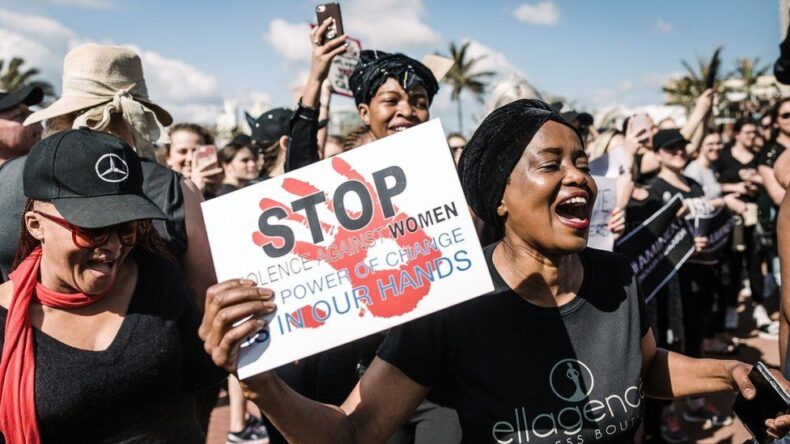The African continent is currently facing a lot of ongoing backward problems as a large chunk of nations in Africa come under developing or under-developed countries. The problems may range from poverty, climate change, education, employment rates, eradication of backward social practices, etc. One of the most concerning problems in Africa would come down to the women labor force in African nations being extremely low.
The problem in women’s upliftment begins from the lowest dredges of Africa like the tribal practices limiting the activities of women in the tribe to cooking and taking care of the kids. The men of the tribes are usually responsible for the tougher jobs such as hunting and due to this often end up becoming the leaders of their groups or tribes.

Then this problem carries over to the more developing parts of the nations such as South Africa where the percent of women recorded as economically inactive has risen to an extremely concerning statistic of 47% compared to 35.6% in men, according to a research study published this Tuesday.
The amount of potential for productivity by women in the workforce remains unexplored. There is a big need for improving the conditions which hold back the women of Africa.
The current unemployment rate for women sits at a staggering 35%.
In the study, it was also highlighted that when women do find work it is usually in exploitative places where the environmental and health conditions are bad. The wage inequality as well sharpens due to this fact, according to the agency.
A brief look at the history of women in Africa
African women have fought for their rights and have raised their voices against injustices time and time again. And their efforts have shown fruitfulness throughout the years and have helped in establishing laws protecting the rights of women.
Several historians around the world have observed the impact that colonialism had on several African nations, which has shaken up things in the large African society as a whole. In Post colonialism, African women used to be at the center of economic productivity.
Some African tribes continue the traditions of their ancestors. Zimbabwe seems to be breaking free of the norm of men leading tribes which previously was considered taboo for many regions of the country. In the southern part of Zimbabwe, Nonhlala Ndube had risen to the top as the leader of the Insiza district. While her fight to take her place as a leader was rough, she had overcome her struggles and continued to inspire the tribal women of her country.
Nigeria too seems to be going through a change in what is considered normal. Feminist women in Nigeria seem to be pushing for a change in the political scene of the nation. Barely any women’s representation is seen in Nigeria’s governance. Only 6% percent of the women make up lawmakers, comprising only 109 senators out of 360 house representative members.
This week Abuja, the capital city of Nigeria witnessed a conference held solely for discussion around the exclusion of women in leadership positions in West African nations.

Though, while there is a severe disparity in gender improvement, Rwanda has emerged as one of the shining hopes for the continent, as it is the only country in the world where women make up 51.06% of the parliament.
In the past few weeks, there have also been shocking revelations in parts of South Africa where eight young women were gang-raped. The terrible incident united African women to protest and call out the injustice that had let the tragic incident happen.
South African police report that 42,500+ rape cases have been reported as of 2019-2020. This statistic roughly translates to 115 rapes a day. The whole country is currently grappling with problems of violence against women, especially in the backward rural areas.
The problem in several of these nations can only be solved through women empowerment and encouragement to uplift African women to be independent.













